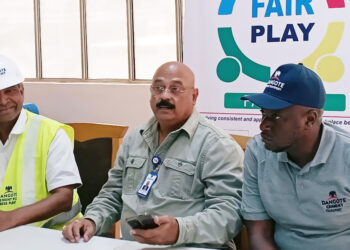By Cecilia Ologunagba
Under-Secretary General and Emergency Relief Coordinator for the United Nations, Martin Griffiths, says that nearly 15 million people in Mali, Niger and Burkina Faso will need humanitarian assistance in 2022.
Griffiths told a virtual meeting on the Sahel region on Thursday that the population was four million more than that of 2021.
According to him, the humanitarian community will need close to two billion dollars for the humanitarian response in the three countries in 2022.
“In 2021, humanitarian organisations reached more than seven million people in the region and raised 700 million dollars in funding, but the needs are growing faster than available resources.’’
Driving this growing humanitarian crisis, Griffiths said, it was a confluence of factors, including conflict and political instability, the pandemic, climate change, and the lack of sustainable development opportunities.
To make real progress, he called for a greater focus on resilience, sustainable solutions, and cooperation across the humanitarian and development sectors, as well as peace sector.
“I visited Nigeria and met people affected by the Lake Chad Basin crisis in the northeast of Nigeria.
“The stories they told me are emblematic of the struggles people across the Central Sahel face: violence, repeated displacement, and difficulty finding sustainable livelihoods for themselves and their families.
“I also hope to visit Mali and Niger in the months ahead to meet with affected people there too,’’ Griffiths told senior officials on the humanitarian situation in the Central Sahel.
According to him, the confluence of conflict, climate change, increasing political instability, lack of sustainable development opportunities, and poverty are driving millions into increasingly desperate conditions.
The UN official said COVID-19 and its economic impact had only made it all much worse.
Griffiths said violent attacks went up eight-fold in the Central Sahel between 2015 and 2021 – with the number of fatalities also increasing more than ten-fold.
“The result is more than two million people displaced including half a million internally displaced in 2021 alone.
“Insecurity and attacks disrupt already weak basic social services. More than 5,000 schools are closed or non-operational, jeopardising the future of hundreds of thousands of children.
“Many health centres are not working. Displacement and increased insecurity have disrupted access to water, sanitation, and hygiene services. And livelihoods have of course been compromised for millions of families,’’ he said.
The official told the meeting that a dramatic food crisis was playing out in the region, driven by violence, high food prices and climate shocks.
“This combination means more people projected to be food insecure than in 2014. The number of people facing severe food insecurity has tripled in Mali and doubled in Niger compared to November 2020.
“During the lean season, more than eight million are expected to be affected.’’
According to him, the Central Sahel is one of the most dangerous places in the world for aid workers.
One-third of all abductions of aid workers in the world in 2020 occurred in Mali, Niger, and Burkina Faso.
He, however, commended the humanitarian workers in the Lake Chad region whose dedication, professionalism and commitment to the people they serve, which is absolutely astonishing. (NAN)


















